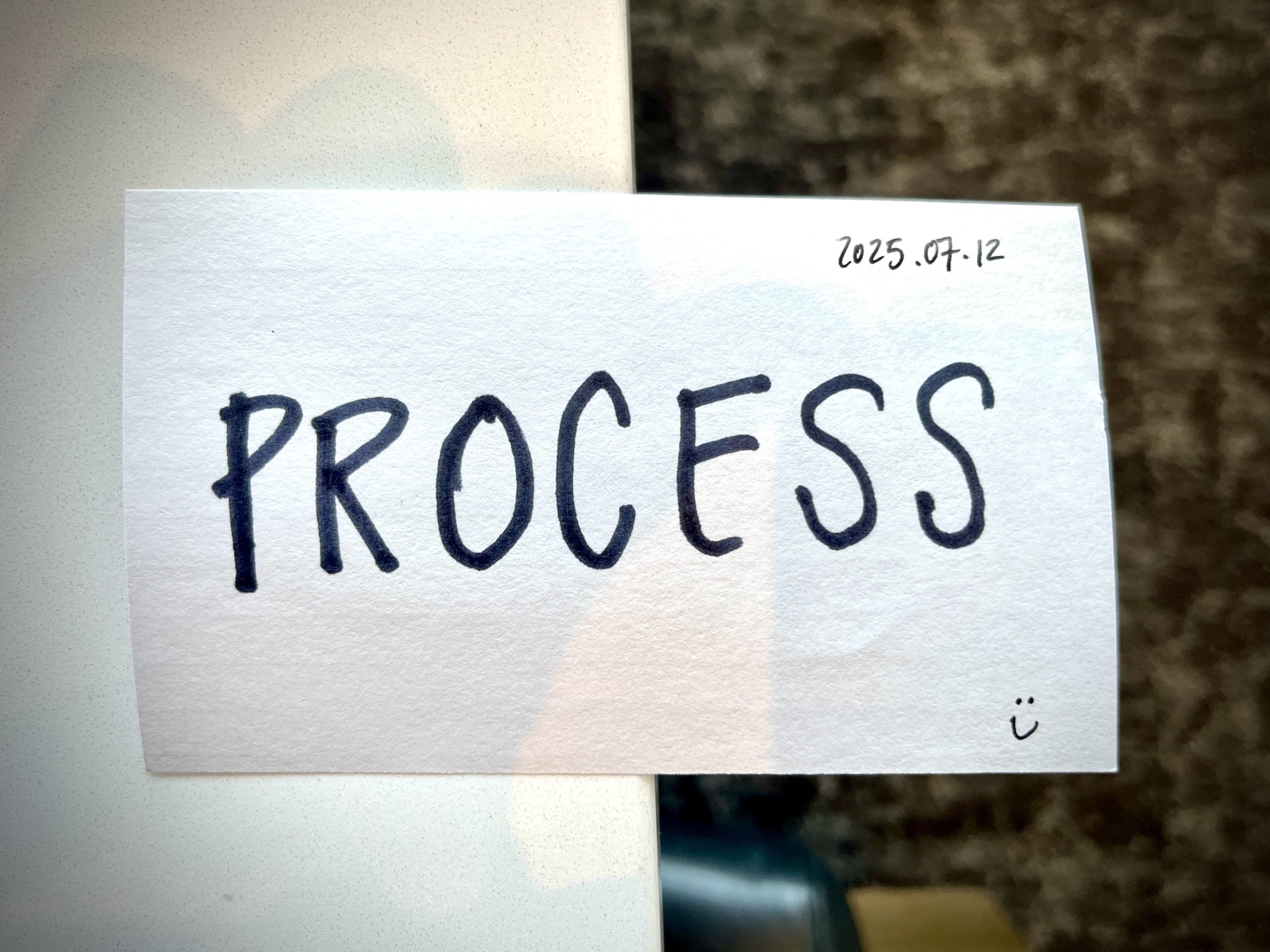Process isn’t inherently good or bad. It just is.
And because it always exists—everywhere, all the time—we have to ask:
Is this process earned? Or just inherited?
Because when process is inherited—handed down without question—it calcifies. It becomes sacred. Untouchable. Even when no one remembers why it exists.
But when process is earned? It stands because it works. Not because it’s always been there.
Inherited
Some process is necessary. Legal, financial, operational. Filing taxes. Approving PTO. Reimbursing expenses.
Don’t file your taxes? You go to jail. Got it! Heard.
Some process serves the product—like a sprint, a review, a daily standup.
But then there’s the other kind.
The process no one questions. The weekly meeting that serves no one. The ritual left behind by your manager’s colleagues’ manager. It also has a buzzword in from a Medium post someone shared 2 years ago—something about accountability. It’s inherited. It’s stale. And no one knows why we’re still doing it.
Performative
Follow principled process. Not performative process.
Here’s the difference:
Principled process is built on reason. Reason that someone can clearly articulate to you.
Performative process is built on routine. When the reason’s been lost, the routine becomes the reason. And that’s when the process starts performing you.
Here’s an example:
A scheduled meeting. A meeting to talk about process. (Not inherently bad, but bear with me.)
It’s a Zoom call with eight people. From the start, after the 5 minute conversations about weather and popcorn style intros, half of them start pretending to pay attention.
Someone kicks things off with a FigJam board—using a stock creative exercise they found but never tried themselves. The first 10 minutes? Spent fumbling through the template.
The next 20? People dragging around vague digital rectangles. Aimlessly. Silently. Then, one by one, folks take turns reading what’s already on the screen. Word for word.
The meeting ends. No decisions made. No clarity gained.
Just 60 minutes of ambient corporate theatre.
Three hours later, someone posts an AI-generated summary in Slack.
Thirty bullet points of corporate soup:
“We must optimize efficiency by improving communication workflows between active workstreams, especially for high-priority projects, in order to maximize our resources while minimizing risk.”
(Or something like that.)
That kind of process doesn’t help.
It performs. It distracts. It replaces the work with the idea of work.
Justify
We trust designers to explore. We trust engineers to prototype.
But our process? We trust that without question. That’s backwards.
Our designs and our code have to prove themselves every day. They have to earn trust. So should process.
If anything, it should be held to a higher standard—because it determines how we move. It creates—or kills—momentum.It’s infrastructure, not wallpaper. Process must earn trust daily—just like the rest of our work.
Process isn’t not moral. It’s mechanical. And if it’s mechanical? Then it can—and must—be maintained, tested, and tuned.
If it can’t justify itself, it shouldn’t direct us.
Challenge
If you see a process that isn’t working—don’t just say it’s broken. If you want to challenge the system, step into the arena.
Don’t come with complaints and empty hands. Come with ideas. Come with sleeves rolled up. Come ready to drive the change.
Questioning process isn’t permission to stall. It’s an invitation to improve.
You’re not fixing it in a vacuum. You’re fixing it in motion. While the team builds. While the pressure’s on. While the thing needs to ship.
This is how process is stress-tested—in the wild. Under load. For real.
Earned
And whatever survives? Earned its place. It walked beside us through the fog, the fire, the mess. Not theory. Not theater.
Just what worked—when it mattered most. That’s earned process. That’s what we keep.
Respect process. Respect people. Fix what’s broken. Always.
And while all of that is happening... Don’t forget to actually build the thing!
